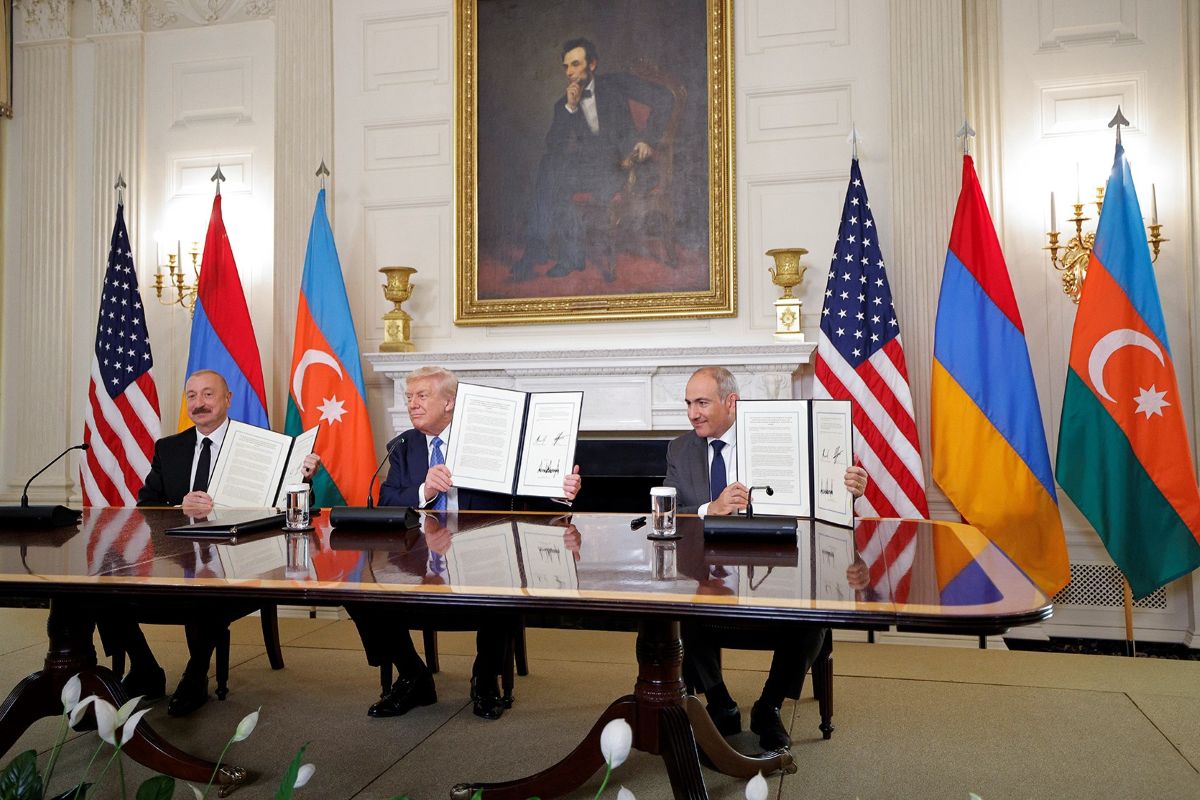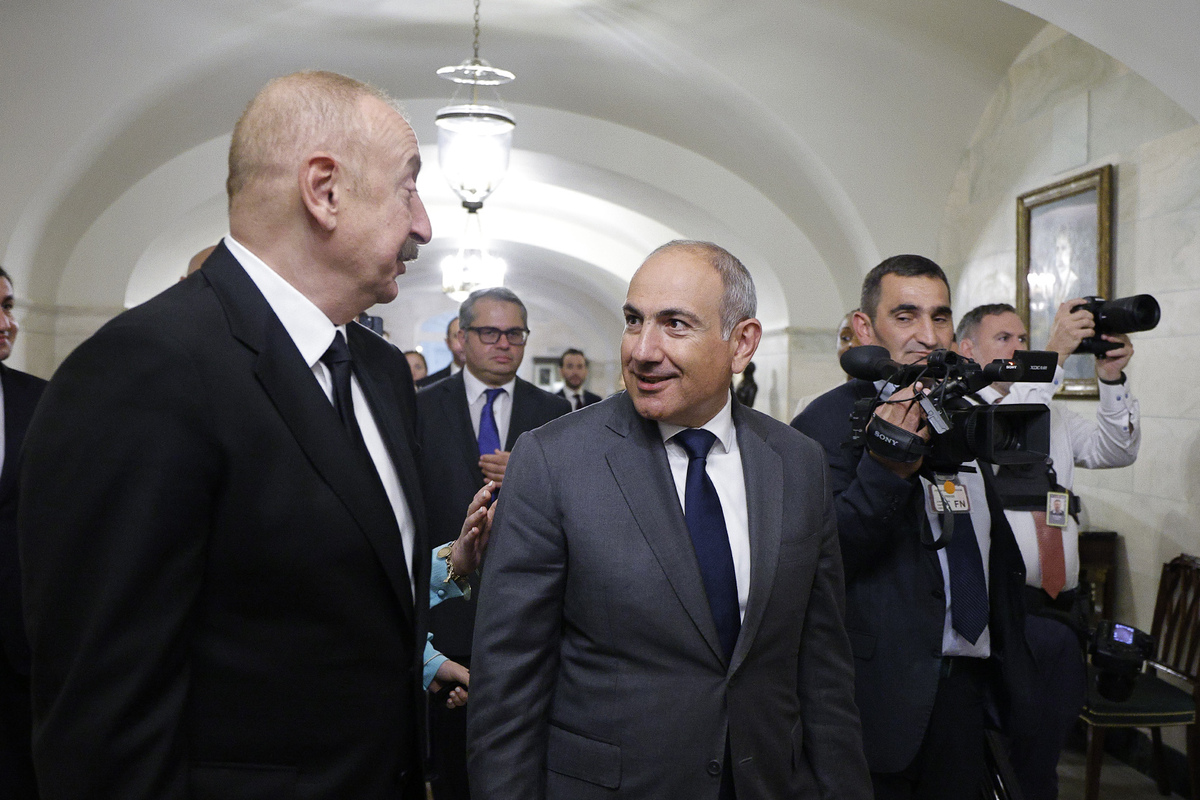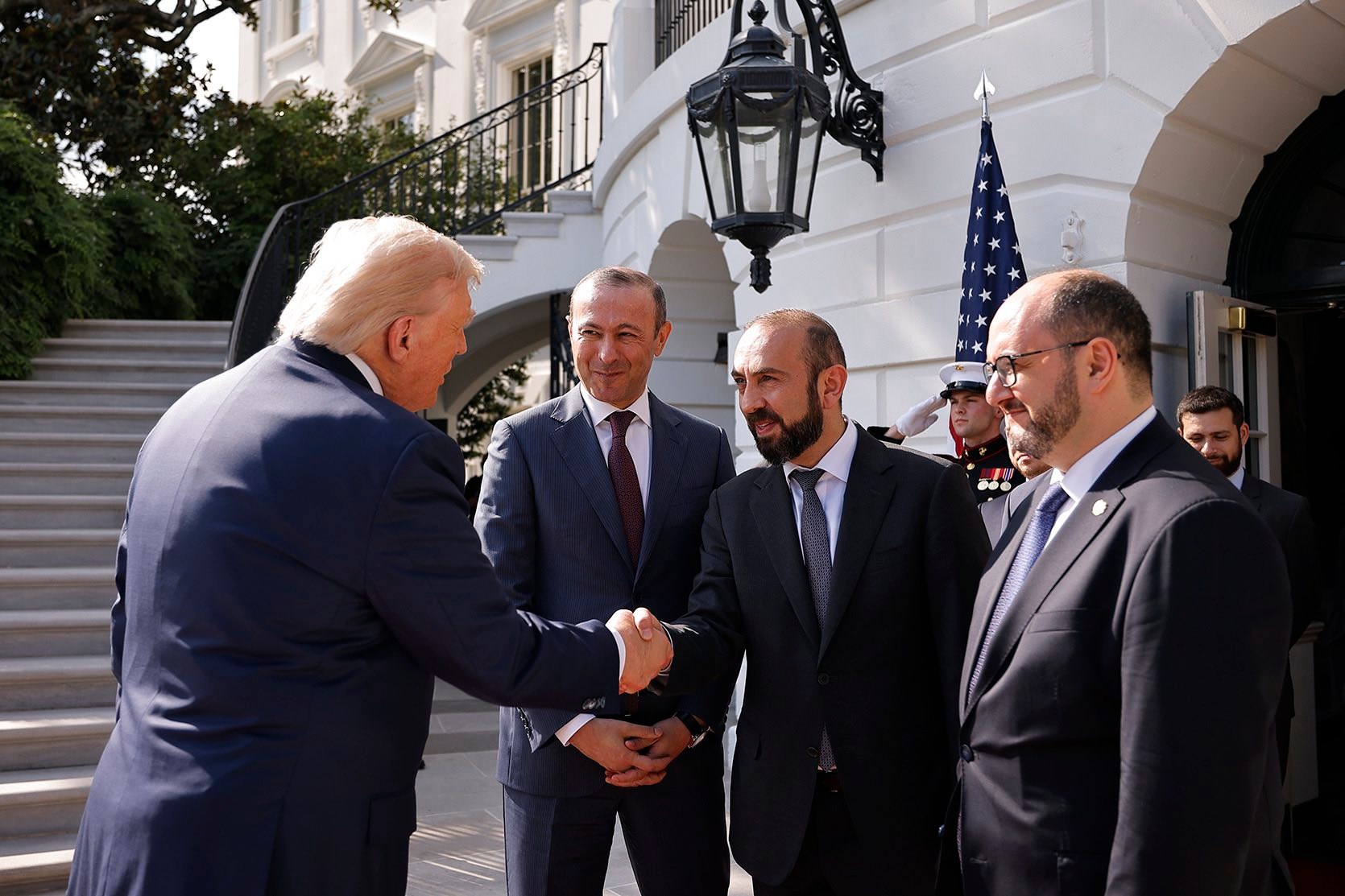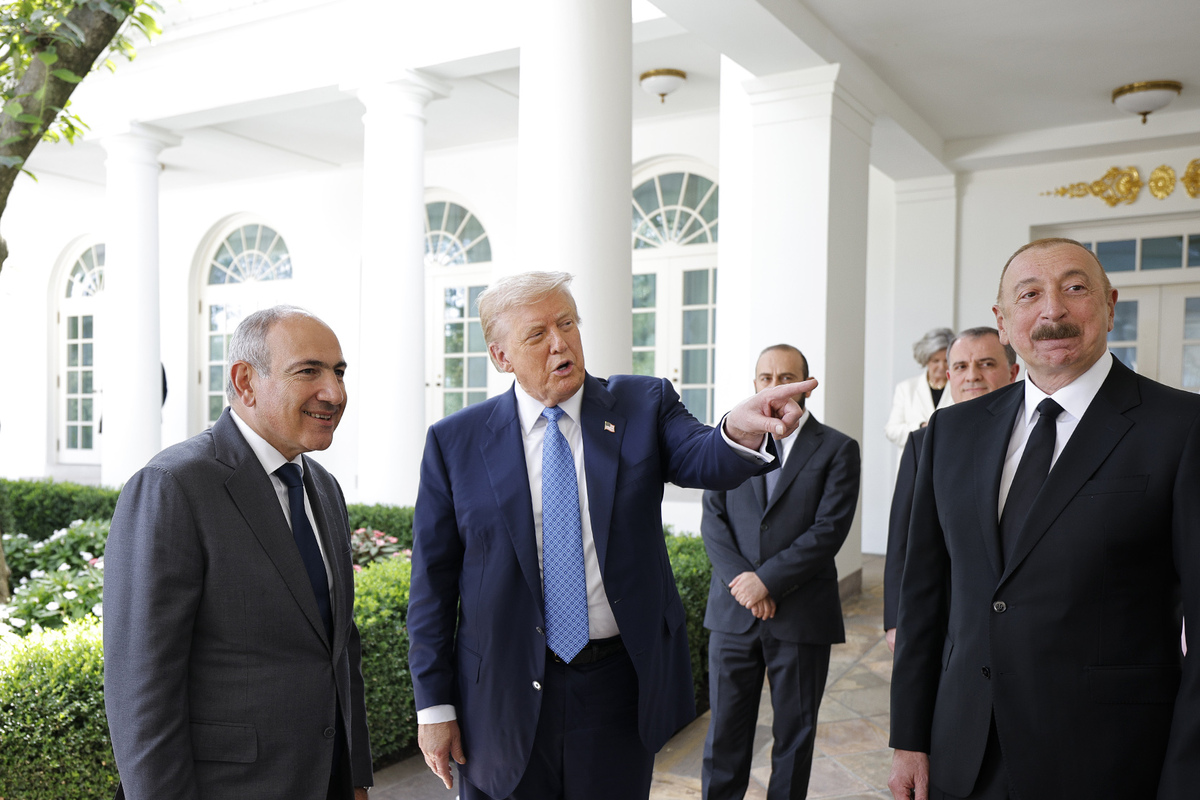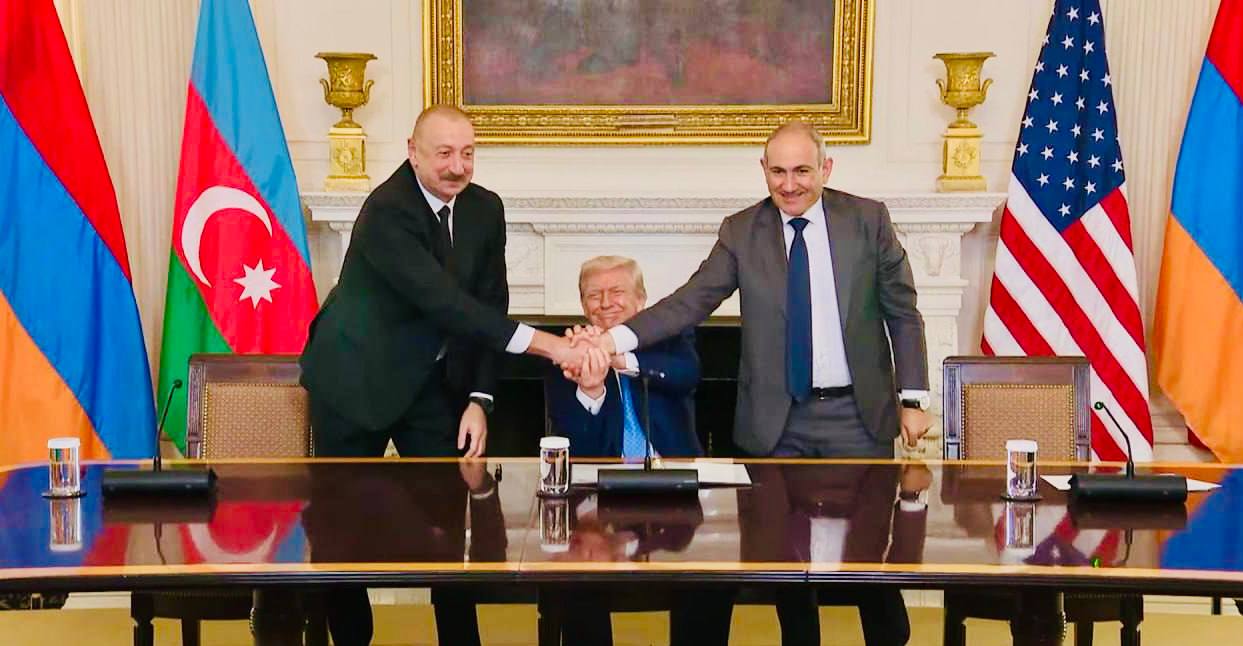Opinion: 'US involvement in South Caucasus is serious step, not game'
Trump Route’s regional impact
“Armenia has brought a powerful state — a superpower like the United States — into the South Caucasus. This is a serious step, not a game,” said Anna Ohanyan, professor of political science at Stonehill College in Massachusetts.
She noted that as a result, Armenia’s role in shaping US–China relations has increased. “Washington’s interest in the Caucasus is largely linked to its tense relations with Beijing,” Ohanyan explained.
She was commenting on the agreements reached by the leaders of Armenia and Azerbaijan during the summit in Washington on 8 August. One of the most important deals concerns the reopening of regional transport links — particularly a road connecting Azerbaijan with its Nakhchivan exclave through Armenian territory. The project has been symbolically named the “Trump Route,” after the mediator of the successful talks.
According to Ohanyan, if this infrastructure becomes part of the Middle Corridor, it would strengthen Washington’s position in its competition with China.
The American scholar also viewed the reopening of transport routes as part of a broader effort to modernise infrastructure across the South Caucasus. She stressed that “the region’s strategic geography is changing.”
In this context, Ohanyan voiced concern that Azerbaijan has kept its land borders closed since 2020, officially citing COVID-19 risks. “This shows that Baku fears open borders and an open region,” she said in an interview with an Armenian outlet.
Below are the key points raised in her interview.
- Ex-president Robert Kocharyan: ‘Armenia gained nothing in Washington except problems’
- Pashinyan-Aliyev meet in Copenhagen while Armenian parliament issues statement in support of peace
- Aliyev calls the “Trump Route” a corridor: Pashinyan’s response at the UN
Armenia–Azerbaijan: The Road to Lasting Peace
“Peacebuilding is a process. I attach great importance to the Washington Declaration signed on 8 August, as it has provided Armenia with the tools to strengthen its position in the peace process. A concrete framework has been created to reduce tensions between Armenia and Azerbaijan — tensions that have persisted for more than a century.
What we are witnessing now is a shift from active kinetic warfare to a ‘negative peace,’ where at least military force is no longer being used.”
Kinetic warfare refers to the use of physical force and violence to achieve military and political objectives. The term “negative peace” is interpreted as a state in which, despite ongoing efforts toward cooperation and mutual understanding, negative emotions and hostility continue to dominate.
This shifts the direction of relations toward a more stable and predictable peace. However, it does not mean that the risk of war has been completely overcome. True and lasting peace will only be achieved when Azerbaijan’s political logic changes.
Armenia should institutionalise peace
“Armenia has no alternative but to institutionalise peace. This is the only way to build a stable and secure environment for itself.
The logic of conflict is no longer acceptable — no country supports Armenia or is willing to defend its interests militarily.
The international landscape is changing. It is crucial for Armenia to continue strengthening its democratic institutions, which are essential for building a resilient state.
In this context, advancing regional relations toward an institutionalised peace is vital. Armenia stands to benefit the most from this process.”
Azerbaijani authorities fear the prospect of open borders
“We are witnessing the modernisation of infrastructure across the South Caucasus. This means the region’s strategic geography is changing.
What concerns me is that Azerbaijan has kept its land borders closed since the start of the COVID-19 pandemic. The government has not reopened even the border with Georgia. For an ordinary Azerbaijani, travelling to a nearby Georgian village is difficult — they have to fly there by plane.
This shows that Azerbaijan fears an open region. President Aliyev needs to ensure that once the borders open, the country’s economic transition — from an oil-based logic to a normal economy — does not harm his regime. That is the key to Azerbaijan’s future.
Even if the Democrats return to power three years from now, when President Trump’s term ends, these processes will not be reversed. There is no going back.
This signals that the United States recognises the changes taking place in the physical geography of the Eurasian continent. Washington understands that the West and East must be interconnected — and that America must play its part in this process.”
Unblocking routes would increase Azerbaijan’s “transit value”
“Azerbaijan’s economy remains heavily dependent on oil. Oil revenues have been declining since their peak in 2010. Despite this, the Aliyev leadership has resisted change, fearing it could destabilise their regime.
Baku should have an interest in opening its border with Armenia and in broader regional integration and economic ties. Moving away from an oil-dependent model would benefit the country.
The Washington agreements are attractive to Aliyev for multiple reasons. They draw the US into the region, offer leverage against Russia, and help consolidate his domestic power. In this sense, they function as geopolitical patronage.
Opening borders also increases Azerbaijan’s “transit value,” a point Aliyev frequently emphasises. While transit revenues won’t fully offset losses from oil, they provide a new income stream.”
Unblocking borders will lead to economic growth in Armenia
“No country can achieve economic growth in isolation with closed borders. It’s simply impossible. Israel is an exception, but a rare one.
The economies of small states rely on exports. Small and medium-sized businesses are crucial not only economically but also politically. These businesses cannot operate in distant markets. They need access to neighboring countries to grow.
Armenia’s economy will undoubtedly expand once borders with Turkey and Azerbaijan are opened. People understand the high economic risks caused by the blockade.
The diverse infrastructure across Armenia, Azerbaijan, and Georgia, combined with modern transport links, is vital for the future development of these countries.”
For the Armenian opposition to succeed in elections, it must end Pashinyan’s monopoly on peace.
“The Armenian opposition would be more successful if, instead of undermining the peace process, it tried to challenge Nikol Pashinyan’s monopoly on establishing peace.
When they criticise the current process, it weakens the ruling party’s accountability. The debate then shifts away from whether the peace policies are effective or how agreements should be implemented. This has the opposite effect: Pashinyan can simply respond that peace has been achieved.
The opposition could achieve political success by proposing alternatives for more effective implementation of the agreements.
If the Armenian opposition’s goal is to succeed in the 2026 parliamentary elections, I don’t think they will, if they continue to criticise the Washington declaration.”
Trump Route’s regional impact










